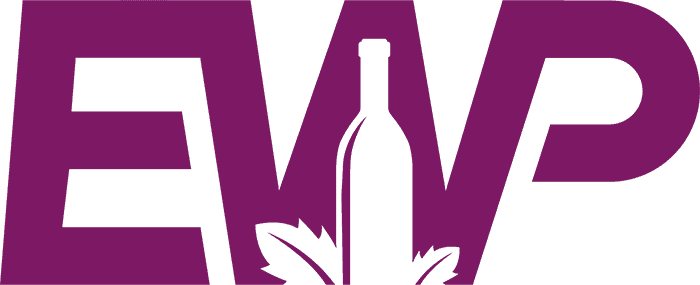Are you curious about the Wine & Spirit Education Trust (WSET) and what it has to offer? Well, you’re in luck! In this article, we will explore everything you need to know about WSET. From their comprehensive wine education programs to the benefits of formal certifications, we’ll dive into the world of wine education. Whether you’re an industry professional looking to advance your career or a wine enthusiast eager to expand your knowledge, WSET has something for everyone. So, let’s uncover the truth about WSET and discover how it can enhance your understanding and appreciation of wine and spirits. Get ready to uncork a world of possibilities with WSET!
Contents
- WSET: An Overview
- Hedonia and WSET Partnership
- WSET Level 2: Beginner-to-Intermediate Course
- WSET Level 3: Detailed Understanding of Wines
- User Engagement: Comments and Follow Us
- Changes in Wine Education
- Accessibility of Wine Education
- Importance of Formal Certifications
- Lack of Diversity in Wine Education
- The Future of Wine Education and Traverse Wine Institute
WSET: An Overview
If you’re interested in wine education, WSET (Wine & Spirit Education Trust) provides a comprehensive and globally recognized certification program. WSET offers numerous benefits for those looking to enhance their wine knowledge and pursue opportunities in the wine industry. With WSET qualifications, you can gain a deeper understanding of wines, regions, and grape varieties, which can open up job opportunities in the growing wine industry. The WSET curriculum covers a wide range of topics, including wine production, tasting techniques, and wine styles. This comprehensive program allows you to develop the skills and knowledge needed to assess wines accurately and explain their style and quality confidently. WSET offers various course formats, including intensive one-day courses and longer evening courses, giving you flexibility in choosing the format that suits your schedule. Whether you’re an industry professional or a wine enthusiast, obtaining a WSET certification can provide you with the necessary credentials to stand out in the wine industry and pursue a successful career.
Hedonia and WSET Partnership
Hedonia has formed a partnership with WSET, offering professional training in etiquette and wine through their Official Approved Programme Provider (APP) status. This collaboration brings numerous benefits to wine enthusiasts and industry professionals alike. With the increasing demand for wine education and the rise of online delivery methods, this partnership allows individuals to access high-quality wine courses from the comfort of their own homes. The industry demand for wine knowledge has grown, especially in regions known for wine tourism like Traverse City. By joining the WSET courses offered by Hedonia, participants can gain the necessary expertise to excel in the wine industry while also expanding their professional networking opportunities.
To highlight the partnership benefits, here is a table showcasing the advantages of Hedonia and WSET collaboration:
| Partnership Benefits |
|—|—|—|
| Online delivery | Industry demand |
| Wine tourism | Professional networking |
Through online delivery, Hedonia’s partnership with WSET ensures that individuals from various locations can access the wine courses conveniently. The industry demand for wine education is met by the comprehensive curriculum provided by WSET, allowing participants to gain knowledge and skills relevant to the wine tourism sector. Additionally, joining these courses creates opportunities for professional networking, connecting individuals with like-minded wine enthusiasts and industry professionals.
The collaboration between Hedonia and WSET brings the best of both worlds – professional training in wine and etiquette delivered through a reputable institution. With the convenience of online delivery, individuals can enhance their wine knowledge, pursue a career in the wine industry, and immerse themselves in the world of wine tourism, all while building valuable connections with other professionals in the field.
WSET Level 2: Beginner-to-Intermediate Course
WSET Level 2 is the beginner-to-intermediate course offered by the Wine & Spirit Education Trust (WSET), providing individuals with a comprehensive understanding of wines and grape varieties. This course is designed for both industry professionals and wine enthusiasts who want to enhance their knowledge and appreciation of wine. Throughout the course, you will explore various wine regions, grape varieties, and wine styles. You will learn about the key wine regions around the world, such as Bordeaux, Burgundy, and Napa Valley, and gain a deeper understanding of the unique characteristics and terroir that contribute to the wines produced in each region. Additionally, you will study different grape varieties, including Chardonnay, Cabernet Sauvignon, and Pinot Noir, and learn how their distinct qualities influence the wines they produce. The course also covers the different styles of wine, such as sparkling, fortified, and sweet wines. By the end of the course, you will have a solid foundation in wine knowledge, making you better equipped to navigate the world of wine as an industry professional or a wine enthusiast.
WSET Level 3: Detailed Understanding of Wines
After completing the beginner-to-intermediate WSET Level 2 course, you can further expand your knowledge and expertise in the world of wines by enrolling in the WSET Level 3 course. This advanced course provides a detailed understanding of grape varieties, wine regions, wine styles, wine evaluation, and wine tasting techniques. Here are four key highlights of the WSET Level 3 course:
- Grape Varieties: Dive deeper into the study of grape varieties and their characteristics. Learn about the major international and regional grape varieties, their flavor profiles, and how they contribute to different wine styles.
- Wine Regions: Explore the world’s major wine regions and the unique characteristics of their wines. Gain a comprehensive understanding of the factors that influence wine production, such as climate, soil, and winemaking techniques.
- Wine Styles: Develop a thorough knowledge of different wine styles, including still, sparkling, and fortified wines. Understand the production methods and aging processes that contribute to the distinct characteristics of each style.
- Wine Evaluation and Tasting Techniques: Learn how to assess wines accurately using professional tasting techniques. Enhance your ability to describe wine style, quality, and age through sensory analysis.
User Engagement: Comments and Follow Us
To engage with other wine enthusiasts and stay updated on the latest news and events, you can join the conversation and follow us on social media platforms. By doing so, you’ll have the opportunity to interact with other wine lovers, share your thoughts and experiences, and gain valuable insights from the community. User feedback is highly appreciated and encouraged, as it allows us to continuously improve our content and offerings based on your needs and preferences.
In addition to social media engagement, you can also subscribe to our newsletter to receive regular updates on the wine industry, upcoming events, and exclusive promotions. Our newsletter is a great way to stay informed and connected with the latest happenings in the world of wine.
In today’s digital age, online wine education has become increasingly popular and accessible. It offers the flexibility to learn at your own pace and convenience. However, it’s important to note that in-person classes still have their advantages, such as the opportunity for hands-on learning and interaction with instructors and fellow students. Each format has its own merits, and the choice between online and in-person classes ultimately depends on your personal preferences and learning style.
Finally, following us on social media and subscribing to our newsletter will also keep you informed about any wine industry scandals or controversies that may arise. We strive to provide transparent and reliable information, and we are committed to addressing any issues or concerns that may affect the wine community.
Join the conversation, stay updated, and be part of our vibrant wine community by following us on social media and subscribing to our newsletter. Cheers to your wine education journey!
Changes in Wine Education
The landscape of wine education has undergone significant changes in recent years, reflecting a growing demand for diverse and accessible learning opportunities within the industry. This shift has been influenced by various factors, including industry scandals, cultural movements, and societal changes. Here are four key changes in wine education that have emerged:
- Online platforms: The rise of online platforms has revolutionized wine education. Zoom classes, webinars, and online conferences have become popular sources of wine knowledge. These platforms offer convenience and flexibility, allowing individuals to learn from the comfort of their own homes.
- Zoom classes: Zoom tastings and classes have gained popularity as a way to connect with wine experts and educators. These virtual sessions provide interactive learning experiences and the opportunity to engage with industry professionals from around the world.
- Industry scandals: Scandals in industry strongholds have led to a greater range of educational opportunities. As consumers become more informed and demand transparency, wine education programs have adapted to address these concerns and provide a deeper understanding of the industry.
- Cultural movements and societal changes: The wine industry has become more inclusive and diverse, with a growing demand for representation and equality. Wine education programs are evolving to reflect these changes, offering courses and resources that cater to a wider audience.
These changes in wine education have opened up new avenues for learning and have made wine knowledge more accessible to a broader range of individuals. Whether you’re a wine enthusiast or a professional looking to advance your career, these evolving educational opportunities can provide valuable insights and expertise.
Accessibility of Wine Education
As you delve into the topic of accessibility of wine education, it’s important to note that the landscape of wine education has become more inclusive and diverse in recent years. Online accessibility has played a significant role in making wine education more accessible to individuals from all walks of life. With the rise of remote learning, wine enthusiasts can now participate in classes and courses from the comfort of their own homes, regardless of their geographical location. However, remote learning does come with its challenges, as some individuals may not prefer Zoom classes or find it difficult to engage without in-person interaction.
When it comes to in-person versus online classes, there is a difference in pass rates, with in-person classes generally having higher pass rates. However, the online format works better for certain courses, allowing access to winemakers and information that was previously difficult to obtain. Inclusivity is of utmost importance in wine education, and formal programs need to adapt to the changing demands of students. It is crucial to ensure that wine education is accessible to individuals of diverse backgrounds, abilities, and learning preferences.
Importance of Formal Certifications
Obtaining formal certifications through programs like WSET is highly valued in the wine industry. Here’s why:
- Value of certifications: Formal certifications provide a tangible proof of your knowledge and expertise in the wine industry. They validate your skills and demonstrate your commitment to continuous learning.
- Career opportunities: Having formal certifications, such as those offered by WSET, can open doors to a wide range of career opportunities. Many employers in the wine industry specifically look for candidates with recognized certifications, as it gives them confidence in your abilities.
- Industry recognition: WSET certifications are globally recognized and respected within the wine industry. They provide a standard of excellence that is acknowledged worldwide, giving you credibility and prestige among your peers.
- Advantages in job switching: If you’re considering switching careers within the wine industry or exploring new opportunities, formal certifications can give you a competitive edge. Employers are more likely to consider candidates with certifications, as they demonstrate a higher level of knowledge and commitment to the field.
Lack of Diversity in Wine Education
To address the lack of diversity in wine education, it is crucial to prioritize accessibility and inclusion for underrepresented groups. Diversity challenges in wine education stem from limited access to educational opportunities for diverse groups, lack of accommodations for students with disabilities, and limited consideration of physical abilities in terms of access and diversity. Overcoming these barriers requires implementing inclusive solutions that ensure access for all and promote equity in education.
| Diversity Challenges | Inclusive Solutions |
|---|---|
| Limited access to wine education for diverse groups | Expand scholarship programs and financial aid options to make wine education more affordable and accessible. Create mentorship programs and networking opportunities to provide support and guidance for underrepresented individuals. |
| Difficulty in accessing information on becoming an educator | Develop comprehensive resources and outreach programs to inform and encourage individuals from diverse backgrounds to pursue careers in wine education. |
| Lack of accommodations for students with disabilities | Invest in infrastructure and resources to make wine education spaces and materials more accessible for individuals with disabilities. Provide alternative formats for learning materials and assessments. |
| Limited consideration of physical abilities in terms of access and diversity | Design inclusive learning environments that take into account the physical needs and abilities of students. Ensure that education and training facilities are accessible and inclusive for all individuals. |
The Future of Wine Education and Traverse Wine Institute
The future of wine education and Traverse Wine Institute holds promising opportunities for wine enthusiasts and professionals alike. Here’s what you need to know:
- Technology advancements: The wine education landscape is expected to continue evolving with the help of technology. Online platforms, such as Zoom classes and webinars, have emerged as popular sources of wine education. These advancements allow for comprehensive and immersive online interactions, providing access to winemakers and information that was previously difficult to obtain.
- Cultural influences: Wine education will be influenced by cultural movements and societal changes. As the wine industry continues to grow, the importance of wine education for both industry professionals and curious consumers will continue to rise. The Traverse Wine Institute aims to contribute to the growth of the local wine region and attract wine experts, while also opening up job opportunities in the industry.
- Job opportunities: Wine education, especially with formal certifications like those offered by WSET, can open up new career opportunities in the wine industry. WSET qualifications are often sought after by employers, and having a recognized credential can help professionals advance in their careers or switch to a new job within the industry.
- Wine industry growth: The wine industry is experiencing growth and demand for wine education has increased among industry professionals and consumers. Wine education programs, like the ones offered by Traverse Wine Institute, provide a standard that is recognized everywhere, allowing individuals to enter the industry professionally and contribute to its growth.
As wine education continues to adapt to changing demands, incorporating technology advancements and cultural influences, it presents exciting prospects for individuals looking to deepen their knowledge and pursue careers in the wine industry.




